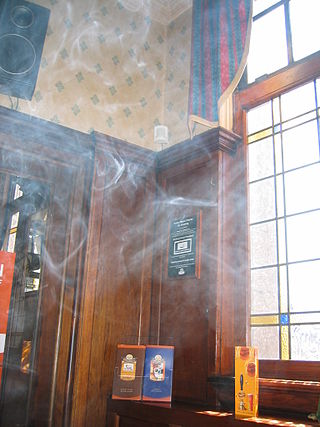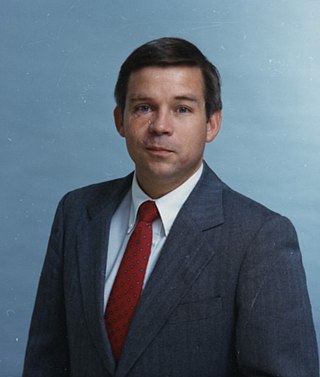Related Research Articles
Junk science is spurious or fraudulent scientific data, research, or analysis. The concept is often invoked in political and legal contexts where facts and scientific results have a great amount of weight in making a determination. It usually conveys a pejorative connotation that the research has been untowardly driven by political, ideological, financial, or otherwise unscientific motives.

Altria Group, Inc. is an American corporation and one of the world's largest producers and marketers of tobacco, cigarettes, and related products. It operates worldwide and is headquartered in Henrico County, Virginia, just outside the city of Richmond.
The Heidelberg Appeal, authored by Michel Salomon, was an appeal directed against the findings of the Intergovernmental Panel on Climate Change. The Heidelberg Appeal's goal was similar to the later published Leipzig Declaration. Before the publication, Fred Singer, who has initiated several petitions like the Heidelberg Appeal, and Michel Salomon, had organized a conference in Heidelberg, which led to that document. It was published on the last day of the 1992 Rio Summit, and warned against basing environmental policies on what the authors described as "pseudoscientific arguments or false and nonrelevant data." It was initiated by the tobacco and asbestos industries, to support the climate-denying Global Climate Coalition. According to SourceWatch the appeal was "a scam perpetrated by the asbestos and tobacco industries in support of the Global Climate Coalition". Both industries had no direct reason to deny global warming, but rather wanted to promote their "sound science" agenda, which basically states that industry-funded science is good science and science contradicting those science is bad science or "junk science".

Passive smoking is the inhalation of tobacco smoke, called passive smoke, secondhand smoke (SHS) or environmental tobacco smoke (ETS), by individuals other than the active smoker. It occurs when tobacco smoke diffuses into the surrounding atmosphere as an aerosol pollutant, which leads to its inhalation by nearby bystanders within the same environment. Exposure to secondhand tobacco smoke causes many of the same diseases caused by active smoking, although to a lower prevalence due to the reduced concentration of smoke that enters the airway.
Steven J. Milloy is a lawyer, lobbyist, author and former Fox News commentator. Milloy is the founder and editor of the blog junkscience.com.

The Heartland Institute is an American conservative and libertarian public policy think tank known for its rejection of both the scientific consensus on climate change and the negative health impacts of smoking.

Thomas Cecil Griscom served as Director of White House Communications under President Ronald Reagan, was a top aide and adviser for a decade to U.S. Senator Howard Baker of Tennessee, and was the executive editor and publisher of the Chattanooga Times Free Press from October 1999 to June 30, 2010.

Burson Cohn & Wolfe is a multinational public relations and communications firm, headquartered in New York City. In February 2018, parent WPP Group PLC announced that it had merged its subsidiaries Cohn & Wolfe with Burson-Marsteller. The combined agency is now known as Burson Cohn & Wolfe.
Gio Batta Gori is an epidemiologist and fellow with the Health Policy Center in Bethesda, Maryland which he established in 1997 and where he specializes in risk assessment and scientific research. He was deputy director of the United States' National Cancer Institute's Division of Cancer Cause and Prevention, where he directed the Smoking and Health Program and the Diet and Cancer Program.

APCO Worldwide is an independent global public affairs and strategic communications consultancy. With 680 employees in 35 worldwide locations, it is also the fifth largest independently owned PR firm in the United States. Headquartered in Washington, D.C., APCO was founded in 1984 by Margery Kraus, who is now the firm's Executive Chairman.
The Weinberg Group is a Washington, DC-based food and drug regulatory consulting group. Founded in 1983, the firm assists pharmaceutical and biotech companies with the "development and implementation of successful and innovative regulatory strategies" and also helps these companies to "remediate, maintain and improve their regulatory compliance." The Weinberg Group sent a memo to DuPont in 2003 recommending that the company “reshape the debate by identifying the likely known health benefits of PFOA exposure.”
The Tobacco Institute, Inc. was a United States tobacco industry trade group, founded in 1958 by the American tobacco industry. It was dissolved in 1998 as part of the Tobacco Master Settlement Agreement.

Tobacco politics refers to the politics surrounding the use and distribution of tobacco.
The National Smokers Alliance (NSA) was an organization created and funded by the PR firm Burson-Marsteller, hired by Phillip Morris, in 1993 to protest against anti-smoking legislation in the United States. The NSA was a public relations group created and funded by the tobacco industry, which operated nationally from 1994 to 1999 to advocate for adults using tobacco products without vigorous regulation or increased tobacco taxes. An early example of astroturfing, the NSA employed stealth marketing tactics to give the appearance of grassroots opposition to anti-smoking laws.

Tobacco has a long cultural, economic, and social impact on the United States. Tobacco cultivation in Jamestown, Virginia, in 1610 lead to the expansion of British colonialism in the Southern United States. As the demand for Tobacco grew in Europe, further colonization in British America and Tobacco production saw a parallel increase. Tobacco use became normalized in American society and was heavily consumed before and after American independence.
The Center for Indoor Air Research was a tobacco industry front group established by three American tobacco companies—Philip Morris, R.J. Reynolds, and Lorillard—in Linthicum, Maryland, in 1988. The organization funded research on indoor air pollution, some of which pertained to passive smoking and some of which did not. It also funded research pertaining to causes of lung cancer other than passive smoking, such as diet. The organization disbanded in 1998 as a result of the Tobacco Master Settlement Agreement.
Good Epidemiological Practices or Good Epidemiology Practices (GEP) was a set of guidelines produced by the U.S. Chemical Manufacturers Association (CMA) in 1991 to improve epidemiologic research practices. It was then adopted by the tobacco industry around 1993 as part of its "sound science" program to counter criticisms of the industry on health and environmental issues such as secondhand smoke. It failed to make much impact on the US and European regulators, but may have had more influence in its later manifestations in Asia and particularly China.
Federal Focus, Inc was a public relations and lobbying company established about 1986 by Thorne G. Auchter and James J. Tozzi who had run the Office of Information and Regulatory Affairs (later to become the Office of Management and Budget during the first term of the Reagan Administration.
The Foundation for a Smoke-Free World is an organization focused on smoking harm reduction founded in 2017.

The tobacco industry playbook, tobacco strategy or simply disinformation playbook describes a strategy devised by the tobacco industry in the 1950s to protect revenues in the face of mounting evidence of links between tobacco smoke and serious illnesses, primarily cancer. Much of the playbook is known from industry documents made public by whistleblowers or as a result of the Tobacco Master Settlement Agreement. These documents are now curated by the UCSF Truth Tobacco Industry Documents project and are a primary source for much commentary on both the tobacco playbook and its similarities to the tactics used by other industries, notably the fossil fuel industry. It is possible that the playbook may even have originated with the oil industry.
References
- 1 2 3 4 APCO (15 October 1993). "Revised Plan for the Public Launching of Tassc (Through 930000)". Philip Morris: Tobacco documents. Archived from the original on 21 April 2014. Retrieved 19 June 2013.
- 1 2 3 4 5 Monbiot, George (19 September 2006). "The Denial Industry". The Guardian. London. Retrieved 11 August 2010.
- ↑ "US Environmental Protection Agency, "Respiratory Health Effects of Passive Smoking (Also Known as Exposure to Secondhand Smoke or Environmental Tobacco Smoke ETS)"". Cfpub2.epa.gov. Archived from the original on 30 June 2010. Retrieved 18 June 2013.
- ↑ "Known and Probable Human Carcinogens". www.cancer.org.
- 1 2 3 Elisa K. Ong; Stanton A. Glantz (November 2001). "Constructing "Sound Science" and "Good Epidemiology": Tobacco, Lawyers, and Public Relations Firms". American Journal of Public Health. 91 (11): 1749–57. doi:10.2105/AJPH.91.11.1749. PMC 1446868 . PMID 11684593.
- ↑ Proposed Plan for the Public Launching of TASSC (Report). Philip Morris, Bates. September 1993.
- ↑ Bates. "Untitled Information Sheet Describing TASSC". The Advancement of Sound Science Coalition. Bates Number: 2046989061.
- ↑ George Monbiot (July 2007). Mad Science interview by Brooke Gladstone. Media, WNYC, NPR Public Media.
- ↑ Thacker, Paul D. (27 January 2006). "Smoked Out: Pundit For Hire". The New Republic. The New Republic. p. 1. Archived from the original on 19 July 2006. Retrieved 23 July 2010.
- ↑ Franklin Foer (12 July 2004). "Closing of the Presidential Mind". The New Republic .
- 1 2 3 "About TASSC - Advisory Board". tassc.org. 12 January 1998. Archived from the original on 12 January 1998. Retrieved 7 July 2007.
- ↑ Rene Romo (2 May 2013). "Carruthers led effort backed by tobacco firm". Albuquerque Journal.
- ↑ TASSC, 16 August 1995, Sound Science Coalition Names Former Congressman Mickey Edwards to Lead Advisory Committee Archived 15 June 2011 at the Wayback Machine
- ↑ "Industrial Group Plans to Battle Climate Treaty". The New York Times . 26 April 1998.
- ↑ Barbara Kingsolver, Flight Behaviour , Faber and Faber Limited, 2012, pages 508-509 ( ISBN 978-0-571-29081-9).